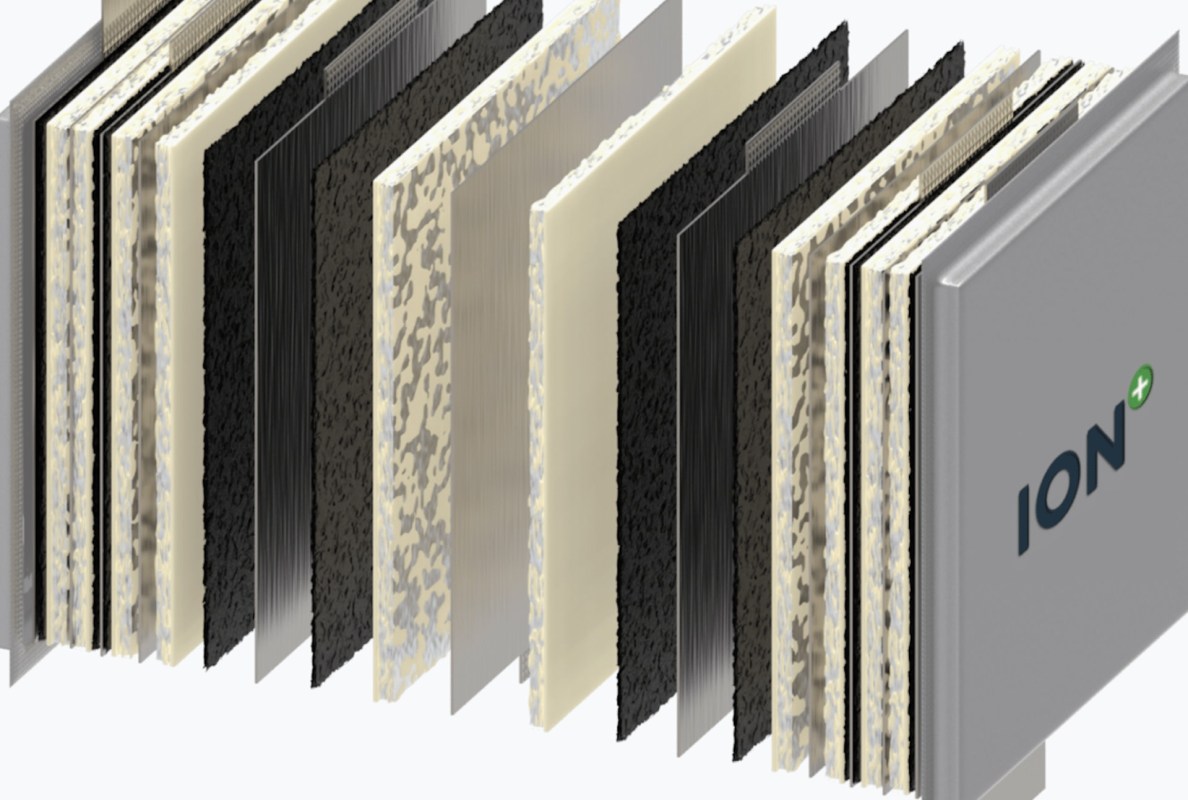Maryland's ION Storage Systems is apparently breaking some rules when it comes to battery science.
Lithium-ion power packs typically have an anode, cathode, and electrolyte — all needed for common chemistry to work. But a recent ION news release promotes an "anodeless" creation with a unique design concept.
"We're not merely meeting expectations; we're setting the standard," ION CEO Ricky Hanna said in the report.
Details on the battery's schematics are vague. The news summary credits a "revolutionary 3-D ceramic structure" that doesn't require graphite or other costly metals, compression, or extensive cooling safeguards.
It's part of a "cell design that supports the use of current and next-gen cathode chemistries, promoting circularity and recycling," according to the company.
A photo of an ION pack shared by Electrek shows it's a palm-sized rectangle.
Watch now: These futuristic gas stations could completely change what it's like to own an EV
Part of the big news is the tech's reported deployment with the U.S. military, as it survived 125 cycles with a performance degradation rate of less than 5%. It continues ION's partnership with the Department of Defense to "rigorously" put the company's solid-state batteries through the paces, with the goal of future application for electric vehicles, storage, electronics, and even aerospace tech, all per the release, published by PR Newswire.
ION touts its solid-state batteries as being simple, safe, fast-charging, and cost-effective.
Batteries with a solid electrolyte are generally considered to have higher storage potential and to be safer than common power packs that use a liquid version. Ions pass between the anode and cathode, through the electrolyte, during operation in standard battery designs.
Battery tech breakthroughs are taking off as EVs and other electronic devices are increasing demand for reliable, fast-charging power packs.
TCD Picks » Upway Spotlight

The developments are crucial to the evolution of our energy and transportation systems to cleaner alternatives. Switching to an EV (and more people than ever are making the change) could save you $1,500 a year in avoided fuel and upkeep costs.
The benefits go beyond bank accounts, as well. Each EV prevents an estimated 10,000 pounds of dirty exhaust from being spewed. Fewer fumes can improve some surprising aspects of our lives. Children's classroom performance, for example, can be diminished by up to 7% annually per student as a result of high heat. The rising mercury is made worse by planet-warming air pollution, all per the Environmental Protection Agency.
For ION's part, the company states that it is preparing to offer its battery tech at scale as its experts work with "various government agencies" to test its innovation in "highly demanding environments."
The next goal is 1,000 charge-discharge cycles with stable performance.
"Our dedicated team of battery scientists work tirelessly to develop better, safer, and more energy-dense batteries," Hanna said.
Join our free newsletter for weekly updates on the coolest innovations improving our lives and saving our planet.














